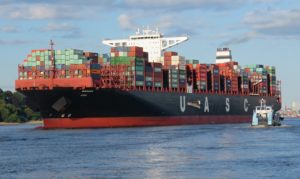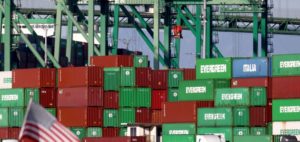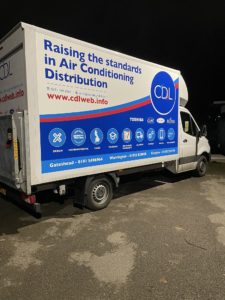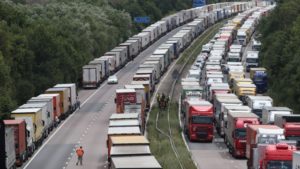It’s not just us. Though it doesn’t always feel that way, many of us have encountered issues in the last 18 months and we have all had to look at the way we work. The days of instant stock and same-day or even next-day deliveries in some cases feel out of reach at times. But why?
The reality is it started due to lockdown. People working from home but also and importantly, not going to the high street or their favourite shop. So, they turned online. Additionally businesses over ordering due to stock issues create higher demand and traffic.

This in turn created a global container volume increase of 25%. However, due to staff shortages, there were fewer container ships available to sail. Additionally delays at docks due to shortages of customs officers and the increased complexity of customs processes due to Brexit.
Then we look at the docks. The increase in traffic naturally adds demand at ports. But haulage companies with their own driver shortages also (Covid and Brexit), cannot keep up with demand and collect containers quick enough to clear them. There’s a lack of overseas workers in the UK, many left for home due to Covid, and then Brexit added complications of any returning.

https://www.bbc.co.uk/news/57810729
So across the globe, containers mount up in the ports. This creates a slow down of unloaded new vessels arriving and also reloading. This leaves full containers at ports while they wait to be collected.
Empty containers are of course needed to complete the cycle, however, ports struggle to handle them due to space. They can’t take in empty containers when they struggle with space of full containers. The delays at ports across the globe, mount up.
https://www.supplychaindive.com/news/empty-containers-ease-congestion-port-of-los-angeles/610171/
So now haulage vehicles are left holding the empty containers which in turn prevents them from being available to collect full containers.
The number of vessels at sea then increased to try and move the increase of containers. But the slow down in port unloading means the extra vessels cause queues at sea.
Again with the extra delay and shortage, consumers and businesses order more and the cycle repeats.

Closer to home, this increased traffic is also hitting couriers. Extra traffic demand has caused the already fragile pallet network to spill over. This has seen goods being left at hubs as they haven’t fit on trunks that move goods overnight. Currently, many couriers across the UK have changed service levels from overnight to up to 5 days in worst cases. From our point of view at CDL, this has lead to us putting more of our own vehicles on the road to allow more certainty and to keep our service level as high as we can.

2022 doesn’t promise to clear up the global shipping issue, so suppliers such as ourselves are funneling resources into back-of-house support to allow us to keep on top of increased demand and the added workload needed for order resolution.